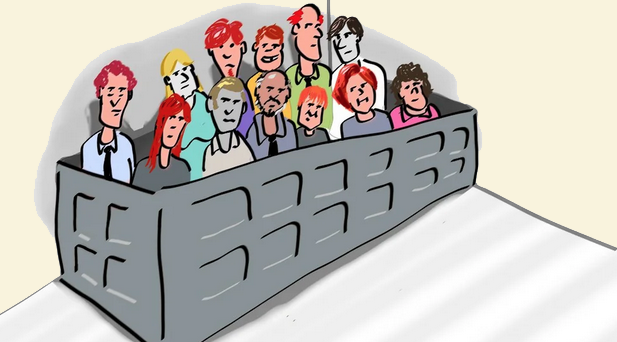— from MSN News —
ÎLE DE NOIRMOUTIER, France — On their peaceful island off France’s Atlantic Coast, some of the locals watched, with growing dread and rage, the images from Paris. As rumors began circulating about an imminent nationwide lockdown to stem the coronavirus outbreak, hordes of Parisians jammed into trains, an odd surfboard sometimes sticking out of the crowd.
There was no doubt about their destination.
“Irresponsible and selfish,” thought Dr. Cyrille Vartanian, one of the six physicians on Noirmoutier. With some time to spare — Paris was roughly five hours away — a local mayor, Noël Faucher, moved to block the only bridge to the mainland. But the national authorities said it would be illegal.
“We were powerless because people were not confined to their principal residences,” Mr. Faucher recalled, describing the influx as “an invasion.’’
Overnight, the island’s population nearly doubled, to 20,000. Nearly two weeks after the nationwide lockdown went into effect on March 17, there are about 70 suspected cases of the coronavirus on the island.
In France and across Europe, affluent city dwellers have been decamping epicenters of the crisis to their second homes, where proximity to the sea or the mountains lessens the discomfort of confinement and a decent internet link permits remote work. But they also bring fears that they will spread the virus to regions with few hospitals to handle a surge in the sick, putting at greater risk local residents who tend to be older and have limited incomes.
The world is battling the COVID-19 outbreak that the World Health Organization declared a global pandemic, which has claimed more than 30,000 lives and infected more than 6,50,000 people around the world.(Pictured) Canadian Prime Minister Justin Trudeau speaks during a news conference on COVID-19 situation in Canada from his residence on March 24 in Ottawa, Canada. Trudeau’s wife has recovered from being ill from COVID-19 disease caused by the new coronavirus.
Perhaps more than anything else, the influx into second homes has ignited anger over what the global pandemic is laying bare every day: the ever widening gap between the rich and the poor. Nowhere is that anger rawer than in France, which has 3.4 million second homes — far more than any of its neighbors — and whose domestic politics have been roiled in recent years by debates over inequality.
Unlike the second-home-owning class, many Europeans face the likelihood of spending weeks in quarantine in cramped spaces. Some have been laid off while others must continue to work, sometimes with limited protection, in low-paying jobs like supermarket cashier or delivery that require contact with people.
At first, the French government urged citizens to work from home in order to slow the spread of the virus. But faced with the prospect of people refusing to work because of the health risks, Bruno Le Maire, the finance minister, urged all employees from “activities that are essential to the functioning of the country to go to their workplaces.”
According to both locals and Parisians on the island, some urbanites arrived in Noirmoutier and headed straight to the beach. They were seen picnicking, kite surfing, jogging and biking. In retribution, tires of about half a dozen cars with Paris plates were slashed.
READ FULL STORY: https://www.msn.com/en-us/news/world/rich-europeans-flee-virus-for-2nd-homes-spreading-fear-and-fury/ar-BB11RrVs
**If you are reading theOrcasonian for free, thank your fellow islanders. If you would like to support theOrcasonian CLICK HERE to set your modestly-priced, voluntary subscription. Otherwise, no worries; we’re happy to share with you.**







